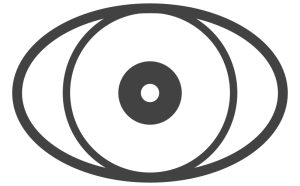
Experimental ethnography begins where method becomes medium. It takes seriously the idea that knowledge is not only written but also sensed, crafted, and performed. Within European Ethnology, it extends the ethnographic method into an aesthetic field—one in which writing, drawing, sound, and image are not merely illustrative but analytical, curatorial, and relational devices.
This cluster examines how ethnography can think through making—how composing across media generates new epistemic and ethical possibilities. Students learn to approach form as theory, to explore how tone, rhythm, and materiality shape ethnographic knowledge. Experimentation here is not about novelty for its own sake but about staying with uncertainty: using drift, montage, and failure as tools for rethinking what it means to know with others.
The cluster unfolds across two complementary courses—one at the undergraduate and one at the master’s level—each cultivating different forms of ethnographic experimentation and care.
- Experimental Ethnography and Multimodality (BA) introduces students to the sensory, material, and creative dimensions of ethnographic practice. Through exercises that translate fieldnotes into drawings, sounds, and objects, students discover how ethnographic meaning shifts as it moves across media. They learn to treat experimentation not as embellishment but as inquiry—a way to sense, relate, and reflect on the everyday. The course culminates in a Cabinet of Ethnographic Translations, a collective exhibition of multimodal experiments.
- Methods of Care, Failure, and Ethics (MA) deepens this exploration by approaching method as an act of care rather than control. It focuses on fragility, maintenance, and repair as methodological and ethical concerns. Students engage theoretical debates on care, failure, and ethics through experimental writing, collaborative reflection, and curatorial practice. The semester culminates in a Cabinet of Failed Methods, an exhibition and written reflection that transforms ethnographic collapse into a site of insight and repair.
Together, these courses form a pedagogical trajectory:
from making sense to making otherwise;
from experimenting with form to cultivating an ethics of failure;
from translating fragments to caring for what breaks in method.
Both courses invite students to inhabit the experimental ethos at the heart of contemporary European Ethnology—where attention, care, and creativity converge to remake the boundaries between fieldwork, analysis, and artistic expression.

Experimental Ethnography and Multimodality (BA)
This course introduces students to ethnography as an experimental and multimodal practice. Through writing, drawing, mapping, and sound, students learn to treat form as inquiry—discovering how materials, gestures, and affects produce knowledge. Combining theory, fieldwork, and studio experimentation, the course cultivates attentiveness to the sensorial and the relational. It culminates in a collective exhibition, The Cabinet of Ethnographic Translations, where students present their multimodal explorations as analytical and poetic forms of ethnographic understanding. Access

Methods of Care, Failure, and Ethics (MA)
This advanced seminar explores method as a practice of care. Beginning from moments of breakdown and uncertainty, it treats failure as a source of methodological insight. Through feminist theory, Science and Technology Studies, and affective ethnography, students develop reflexive approaches that foreground maintenance, vulnerability, and repair. Combining analytical writing and curatorial practice, the course culminates in The Cabinet of Failed Methods, a collective exhibition reflecting on the ethics and aesthetics of ethnographic endurance. Access
Course Relationship and Progression
Experimental Ethnography and Multimodality and Methods of Care, Failure, and Ethics are designed as complementary yet distinct stages in the exploration of ethnographic experimentation within European Ethnology. Together, they form a coherent pedagogical trajectory that moves from learning to experiment with form to cultivating method as an ethical and affective relation.
The undergraduate course, Experimental Ethnography and Multimodality, introduces students to ethnographic practice as a craft of making. It encourages them to work with writing, drawing, mapping, and sound as analytical media—each capable of producing distinct ways of knowing. Through weekly exercises that translate fieldnotes across different modalities, students learn how form itself becomes a mode of thought. The course cultivates attentiveness to texture, tone, and relationality, emphasizing experimentation as a form of care. The final exhibition, The Cabinet of Ethnographic Translations, gathers these explorations into a collective assemblage of multimodal fragments.
The master’s course, Methods of Care, Failure, and Ethics, extends these sensibilities into deeper methodological and philosophical terrains. Here, students treat failure, maintenance, and fragility as ethnographic conditions rather than obstacles. Through readings in feminist theory, Science and Technology Studies, and affective ethnography, they interrogate how care operates as both an epistemic and ethical stance. Studio practicums invite students to translate breakdowns and interruptions into analytical artifacts, culminating in the Cabinet of Failed Methods, a public reflection on what it means to practice ethnography otherwise.
Together, these courses enact a progression from form to relation, from experimentation to ethics. Students first learn to make ethnography as a material and aesthetic inquiry, then to remake method itself as a practice of care and endurance. The cluster as a whole advances a central commitment of European Ethnology: to think through the everyday not only by observing and describing it, but by crafting, curating, and caring with it.
